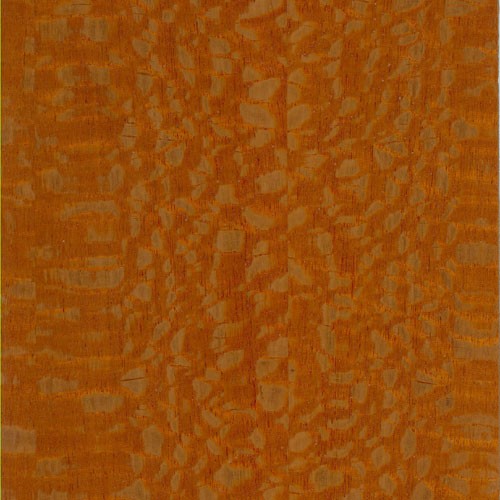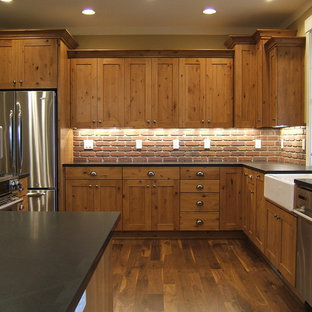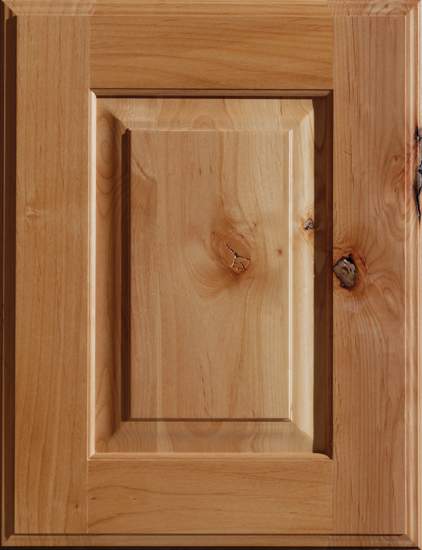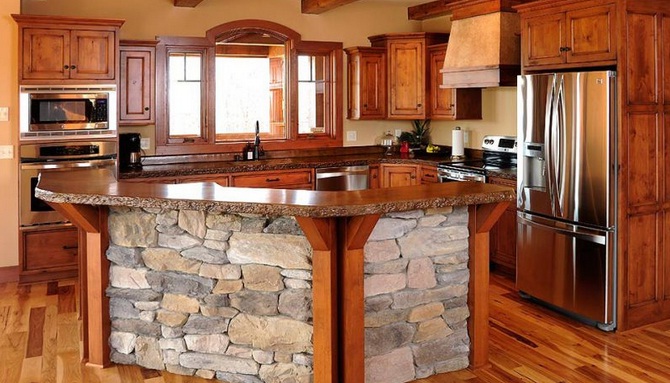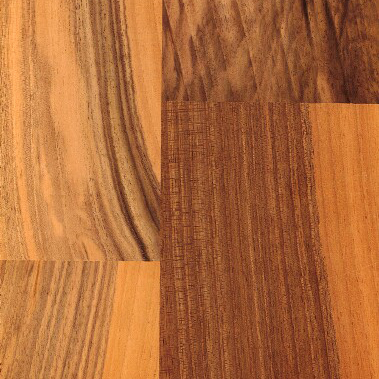Brazilian Lacewood
[Panopsis spp.]
While the name “Lacewood” is used very loosely and often applied – even misapplied – to a number of different wood species, this accurately monikered Lacewood is native to tropical South America, notably Brazil. So, predictably, it’s sometimes distinguished as “South American Lacewood.”
By either name, the Brazilian variety of Lacewood is a stunningly beautiful wood — one you’ll never forget once you’ve seen it. Characterized by a mesmerizing light to medium reddish-brown color, with grey to light brown rays, Lacewood’s dramatic figure and large flecks are produced when the wood is quartersawn, a result of the wood’s large medullary rays being highlighted by the cut. The effect resembles the lace or leopard print pattern that makes this species so special.
Presenting extreme eye-appeal for any decorative application, Lacewood is a very popular choice for veneer and architectural plywood, fine furniture, cabinetry, automobile interiors, musical instruments, and gun stocks.
Species Distribution:
Australia
Queensland
South America
Brazil
Common / Alternative Names:
Lacewood
Northern Silky Oak
Bull Oak
Golden Spanglewood
Oak
Oongaary
Janka Hardness:
840 lbf
Sustainability Status:
CITES Appendices: Not listed
IUCN Red List of Threatened Species: Not listed
Related Species:
Lacewood (Panopsis spp.)
Leopardwood (Roupala spp.)
Macadamia Nut (Macadamia integrifolia)
Southern Silky Oak (Grevillea robusta)


